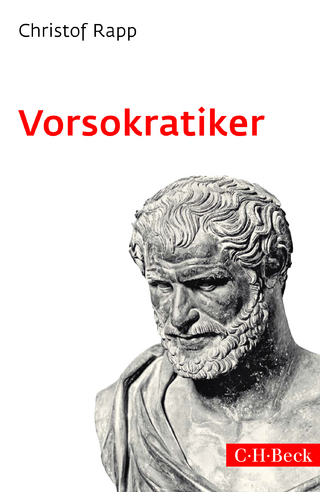
Rediscovering Political Friendship
Cambridge University Press (Verlag)
978-1-107-02296-6 (ISBN)
Aristotle argued that citizenship is like friendship, and this book applies his argument to modern society. Modern citizens may lack the concept of civic friendship, but they persist in many practices and passions that were once considered essential to it. Citizens share many similarities with friends: prejudices held in common, favoritism towards each other, and - despite disagreement on specifics - underlying agreement about what is important, such as freedom and equality. Aristotle's theory reminds us that civic friendship is a factual condition of healthy societies, not a pie-in-the-sky ideal. By recognizing when it occurs and understanding it, we can build on it to counteract societal polarization. Civic friendship offers an alternative to populism and nationalism by engaging some of the same passions. In an era increasingly marked by tribalism and identity politics, this timely study will be of interest to a wide range of readers in political science, classics, and philosophy.
Paul W. Ludwig teaches liberal arts at St John's College, Annapolis. He is the author of Eros and Polis: Desire and Community in Greek Political Theory (Cambridge, 2002) and has contributed articles to the American Journal of Philology and the American Political Science Review.
Preface and acknowledgments; Introduction; Part I. Foundations of Friendship: 1. Friendship from identity: recognizing anger in the politics of recognition; 2. Friendships from utility and activity: toward a more realistic social policy (and more idealistic civil society); Part II. Where is Civic Friendship Today?: 3. How associations replaced civic friendships: why altruism conspires with self-interest to produce the 'free rider'; 4. Why associations are really civic friendships: finding the balance between associations and the state; Part III. A Different Way to View Liberalism: 5. From communitarianism to civic friendship: broadening out beyond associations; 6. Commercial society and civic friendship: property and liberty are preconditions of friendship; 7. Mass society and civic friendship: the basic agreement that citizens cherish; Part IV. Conclusion: 8. What is the use of civic friendship: sheltering liberal practices from the effects of liberal theory; List of works cited; Index.
| Erscheinungsdatum | 09.01.2020 |
|---|---|
| Zusatzinfo | Worked examples or Exercises |
| Verlagsort | Cambridge |
| Sprache | englisch |
| Maße | 157 x 236 mm |
| Gewicht | 620 g |
| Themenwelt | Geisteswissenschaften ► Philosophie ► Philosophie Altertum / Antike |
| Geisteswissenschaften ► Philosophie ► Philosophie der Neuzeit | |
| ISBN-10 | 1-107-02296-7 / 1107022967 |
| ISBN-13 | 978-1-107-02296-6 / 9781107022966 |
| Zustand | Neuware |
| Informationen gemäß Produktsicherheitsverordnung (GPSR) | |
| Haben Sie eine Frage zum Produkt? |
aus dem Bereich


